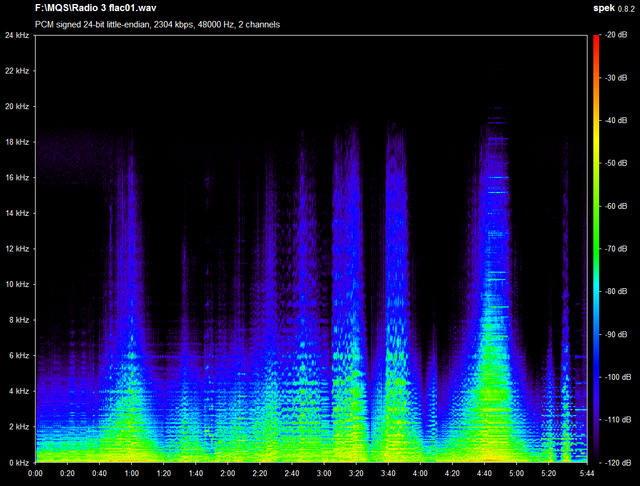Jim Audiomisc
pfm Member
I've now made some lengthy captures of the flac stream. If anyone else is trying this the following may be of interest.
I recorded the evening concerts on the 10th and 11th. During both ffmpeg did throw some error reports relating to TLS and HTTPS/DASH. In short, the TLS ones probably have no effect. but the HTTPS/DASH ones here means a circa-4sec block of audio was missed when the errors were thrown.
Determined this by doing comparisions with the 320k aac version. I can also hear the abrupt jumps in the audio.
My connection has in the past seemed prone to iplayer stream 'pauses' in the evenings, so this may not be something others usually get.
I've also managed to time align copies for the 10th and do a sample by sample 'diff'. This is useful as the result exposes what changes the 320k aac imposes. In places if I play the 'diff' file the results are quite audible. Which does, indeed, support the idea that flac carries details the aac loses or alters. But I'll need to do more to quantify this, etc.
I recorded the evening concerts on the 10th and 11th. During both ffmpeg did throw some error reports relating to TLS and HTTPS/DASH. In short, the TLS ones probably have no effect. but the HTTPS/DASH ones here means a circa-4sec block of audio was missed when the errors were thrown.
Determined this by doing comparisions with the 320k aac version. I can also hear the abrupt jumps in the audio.
My connection has in the past seemed prone to iplayer stream 'pauses' in the evenings, so this may not be something others usually get.
I've also managed to time align copies for the 10th and do a sample by sample 'diff'. This is useful as the result exposes what changes the 320k aac imposes. In places if I play the 'diff' file the results are quite audible. Which does, indeed, support the idea that flac carries details the aac loses or alters. But I'll need to do more to quantify this, etc.



